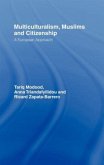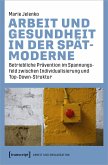Given the limitations posed on some religious practices in secular contexts, a trend of individualization, or a self-fashioned approach to religious practices, has surfaced in an emerging debate in literature dealing with the study of Muslim minorities. While the term is used for critical arguments, it lacks empirical data, which this research aimed to contribute to by using in-depth, semi-structured interviews. The study maps the basics of a "theory of individualization". Following it, interviews are conducted and analyzed, by which the study contextualizes individualization in Europe, taking Spain's second-generation Moroccans as a case study, to answer the question: How do Muslims reconcile their religious duties with their everyday life in contemporary Spanish society? The study poses a theoretical challenge to secularization in Europe. The limited set of religious options in a context demonstrates that they matter more than the generational effect. Equally, they do not translate to personal secularization, but an expression of limitations, rather than liberties. The book is directed to researchers on the topics of immigration, diversity management, and religious practices.







